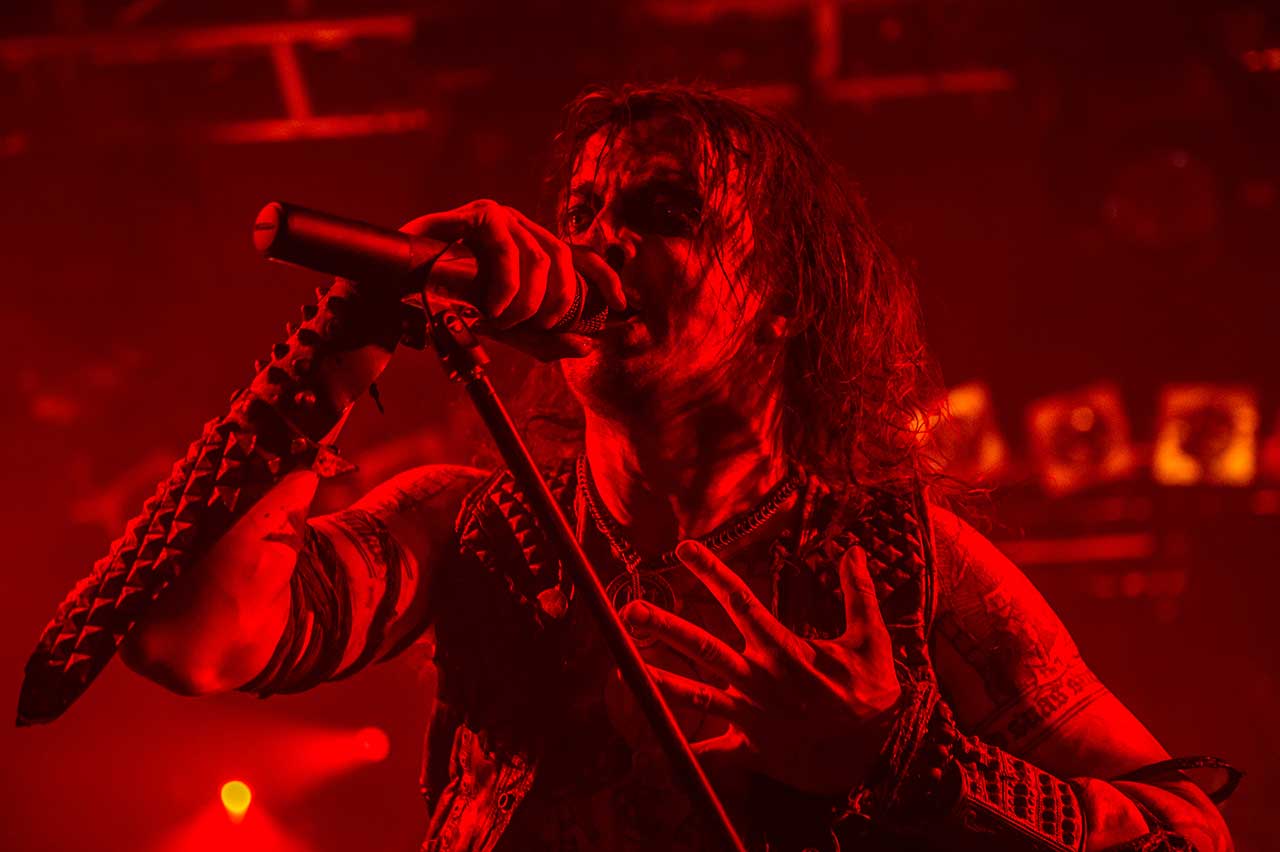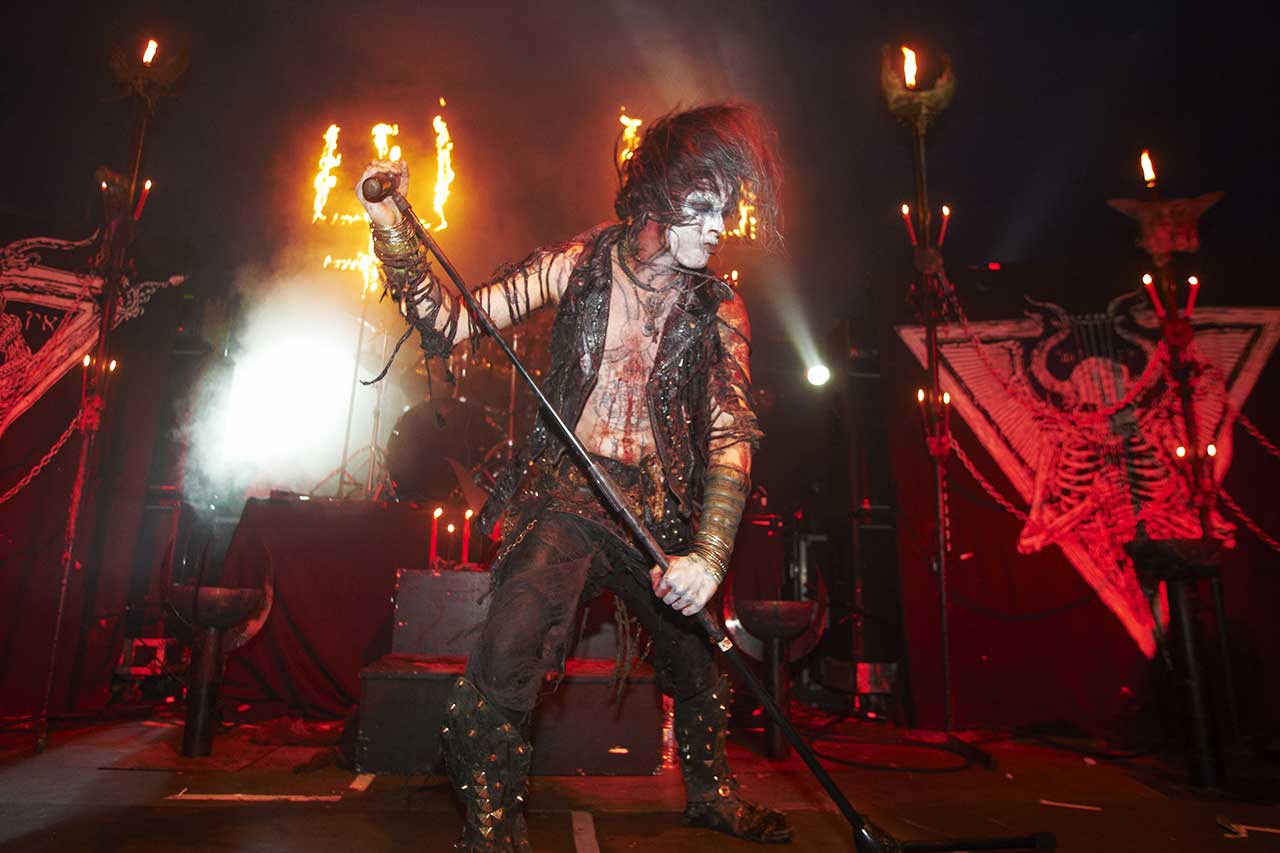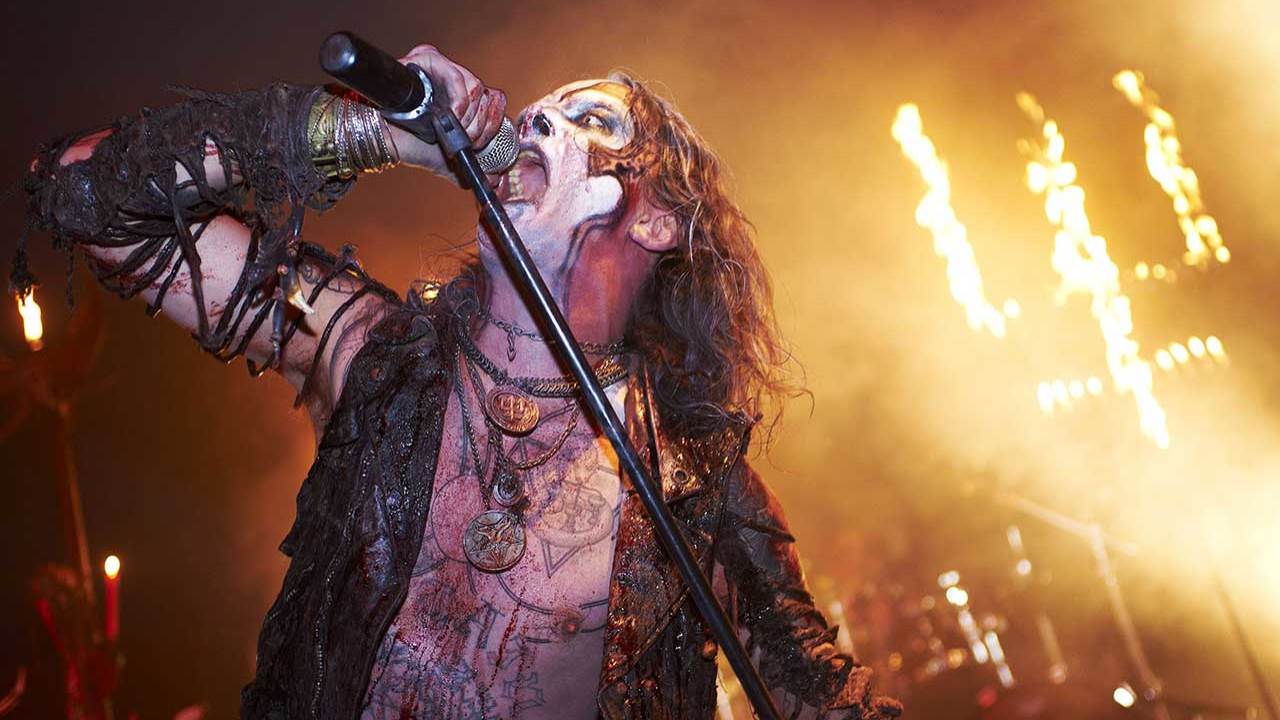On paper – and perhaps even on record – Watain were perhaps an unlikely candidate for success in the wider music scene, beyond the parameters of black metal’s tight community. Yet in a sense it is their uncompromising nature, as well as their burning dedication and strength of vision, that has seen their discography and stage show continue to attract outsiders like moths to the flame. Where once black metal’s more mainstream manifestations tended to lean toward the more gothic-coloured groups such as Cradle Of Filth and Dimmu Borgir, now the more extreme sounds of Watain represent the face of the genre for many and thus, perhaps naturally, the individuals behind the band have been met with continued interest, none more so than their spokesperson and frontman.
Now vocalist Erik Danielsson is the subject of a documentary produced by Claudio Marino of Stockholm production company Artax Film, who has made him one of the subjects in trilogy called Blood And Spirit that “seeks to capture the souls of artists and those who tread their own path to personal enlightenment and creative wealth”. Watain is currently on tour in the US with Norway’s Mayhem and Greece’s Rotting Christ, and Erik took time out from the sound checks and setlists to speak to us and tell us more about taking part in the project and bearing his soul to the outside world.
Tell us about Blood And Spirit and your role in the series. How did you come to be involved in the project?
“It came about because the director is an old friend of mine. He organised a show for us in, I think, 2005, and we kept in touch ever since. I like his way of working and his visual expression, there’s something solemn and severe there that I can relate to. He got in touch because he was doing a trilogy about three individuals that he could see a common denominator between, which, according to him, was that these were people who chose their own path in life and do things their own way. People who have as little as possible to do with society, and instead create their own world in a way. So the first is about a tattoo artist, the second is about a UFC fighter and the third is about me. They’re all short films, about twenty minutes each. I really want to underline that this is by no means a new Watain film, it’s not a film about Watain, it’s Claudio’s portrait of me as a person and an artist. I guess there is some value in it for people interested in Watain on a personal level, but we weren’t the initiative takers, it’s all Claudio.”
So is this a portrait of you as an artist or are you talking about your life outside Watain as well?
“I mean, I wish I could talk a bit about my life outside of Watain, but I don’t have one (laughs), it all sort of floats together. There’s a lot of talk about Watain, but it’s basically more of a personal interview with me and he has filmed me doing stuff outside of Watain, making artwork and doing layouts. It’s cool, I think people will be a little bit surprised how un-Watain it feels. At the same time it deals with what motivates me and what motivates Watain and talks about the nature of the fire that I always talk about with Watain and goes a bit deeper into that.”
In what way do you see it as being un-Watain and how do you feel about showing that side of things?
“I guess people who see me in Watain are used to seeing me on stage or doing Watain interviews, but for this he filmed me creating designs and taking a walk in the woods where I live, stuff like that. I don’t know why I did it, actually. It’s the same way always; if someone asks me to do an interview I usually say ‘yes’ and then I wonder, ‘Why the fuck did I do that?’ and I always have the same feeling: ‘Why did I open up? What is the need for that?’ But I came to the conclusion that even though I am not personally very comfortable talking to anyone about what I do, it serves a greater purpose and presents a clearer picture behind my work and the driving force behind that. That in turn leads to greater integrity and understanding and taking that into consideration, my own well-being or level of comfort is insignificant in comparison to the things that make our work more relevant and clear.”

You’ve always been very much the voice of the band, do you ever find that hard?
“I’ve been gifted with a sharp tongue and I can enjoy doing interviews. I think it almost becomes something artistic, it’s a way of diving into your work, just as creating is. I think the most important thing to not feel uncomfortable is to feel that what you are doing is serving a purpose. If you are doing interview after interview about the same thing you wonder why you are doing it. I can easily get frustrated with the whole idea of talking to someone and not getting anything in return so to speak. But at the same time, not only has it benefited my own work, but it’s also led me to understand myself a bit more and it’s taught me to think thoroughly about what I do and why I do it. That’s one of the benefits of being a spokesperson, the picture clears ever more.”
Is there a line you draw between your public persona and your private space?
“There’s not a clear line, it’s really whatever feels relevant at the time. This whole thing I’m very paradoxical about, because if it was up to me, I would not talk to anyone about what I do, I would just do, but at the same time I enjoy reading interviews with the bands I like. It always adds to the appreciation of an artist when you understand that they are also capable of speaking for themselves. Of course there’s been times where it’s too much about nosiness or people trying to get under your skin. When it gets to that point I just tell them to fuck off.”

As Watain gets bigger, it’s perhaps inevitable that more people – and different types of people – will want to speak to you to find out what these bold artistic statements mean. But for you, I guess that means revisiting the same ground over and over again…
“That’s why I prefer doing interviews with the same journalist many times, because if I do an interview with whoever newbie who’s never interviewed me before, you can be sure they will ask about the blood and some extremely childish questions about religion and belief. That’s the sort of interview I personally get nothing out of. I understand when you do an album you want to spread the word far and wide, but when there is less going on I prefer to concentrate on interviews that give me a little more.”
Speaking of which, are there any thoughts on writing a new album?
“We never worked in that way and planned a period of time when we would supposedly write new material. Those things usually happen when there is nothing at all going on, and that is pretty much what we are looking at after the US tour. Empty spaces is usually where the interesting things happen.”
Finally, as someone who came from an underground, outsider genre, how do you feel about Watain and black metal in general getting bigger and receiving more attention as time goes by?
“Well although at one time it seemed that the trendiest thing was to be in a black metal band, it’s not like there is a big black metal album coming out every month these days or anything. The media coverage is still huge compared to ten or fifteen years ago, but the fact there is hype about it hasn’t actually reflected in the amount of black metal bands or tours. That’s something that generally I like. Maybe I’m romanticising, but I like to feel that although everyone knows what black metal is now, I think people approach it and ask themselves, could they be in a black metal band, and very few of them would say ‘yes’. It doesn’t matter how many people are wearing the shirts, very few would be able to take the steps to becoming a practitioner, a performer. That’s maybe one of the benefits; although it’s much more accessible, it’s still something people also feel alienated from. At least I hope they understand it that way, because they should.”
